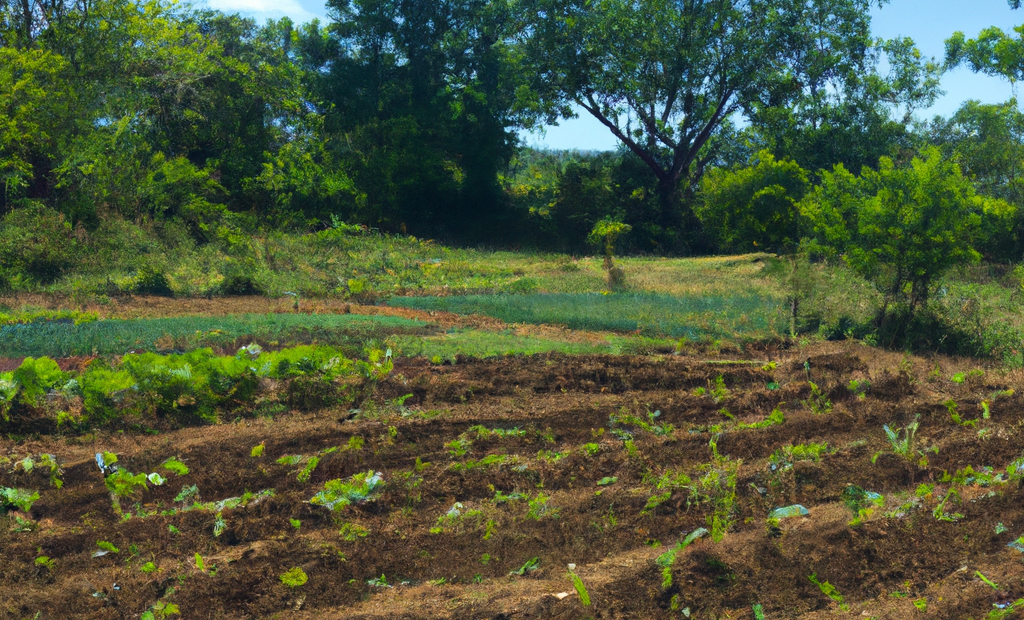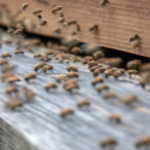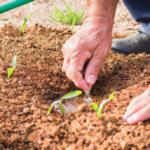The article discusses organic farming and its sustainability, highlighting the use of natural methods and biofertilizers instead of chemical fertilizers. Biofertilizers, made from living organisms, promote soil health and biodiversity, without depleting soil quality. The use of native plants is mentioned as a key strategy for more sustainable and diversified agricultural production, since they can function as biofertilizers and resist pests. The use of fertilizers, especially biofertilizers, is essential to promote the growth and health of native plants in organic farming.
In a world increasingly aware of the environmental impact of our actions, the search for more sustainable and environmentally friendly solutions has become an imperative. One of these solutions lies in organic farming, a production method that promotes the use of natural elements to improve soil health, biodiversity and food quality. In particular, this article will focus on the use of native plants as an effective tool to improve biodiversity. Native plants, adapted to local soil and climate conditions, require less fertilizers and agricultural products, which in turn results in greater sustainability. The role of biofertilizers, an environmentally friendly alternative to synthetic fertilizers, in promoting biodiversity through native plants will also be explored. This comprehensive approach offers a fresh and hopeful perspective on how organic farming can contribute to the conservation and improvement of biodiversity.
- 1. "Introduction to Organic Farming: Improving Biodiversity with Native Plants"
- 2. "The Role of Biofertilizers in Promoting Biodiversity through Native Plants"
- 3. "Agricultural Products: Using Native Plants to Enrich Biodiversity"
- 4. "Fertilizers and Native Plants: A Powerful Combination for Biodiversity"
1. "Introduction to Organic Farming: Improving Biodiversity with Native Plants"
Organic farming, also known as organic farming, is a sustainable and environmentally friendly way of growing food and other plants. This practice focuses on the use of natural and sustainable methods, avoiding the use of chemical fertilizers and other agricultural products that can be harmful to human health and the biodiversity of the environment. One of the main goals of organic farming is to improve biodiversity, that is, the variety of life in a particular area. An effective way to achieve this is through the use of native plants. Native plants are those that have developed, over time, adaptations to local conditions, being more resilient and requiring less maintenance than exotic species. Additionally, the use of biofertilizers, which are a more environmentally friendly source of nutrients, can help improve soil health and enhance the growth of these native plants.
2. "The Role of Biofertilizers in Promoting Biodiversity through Native Plants"
Biofertilizers play a crucial role in promoting biodiversity through native plants. These agricultural products based on living organisms benefit plants by improving their nutrition and helping the absorption of nutrients. Biofertilizers, unlike traditional chemical fertilizers, are environmentally friendly and promote ecological agriculture, since they do not degrade or deplete soil quality in the long term. By using biofertilizers in agriculture, biological diversity is encouraged as they create a healthy habitat for different types of soil organisms. Additionally, the use of native plants in combination with biofertilizers can increase resistance to pests and diseases, thus improving crop health and productivity. Biofertilizers are therefore a valuable tool to improve biodiversity and promote more sustainable agricultural practices.
3. "Agricultural Products: Using Native Plants to Enrich Biodiversity"
The use of native plants in agriculture not only promotes biodiversity, but also offers multiple benefits for the health of soils and surrounding ecosystems. The use of fertilizers and agricultural products can be replaced or complemented with these plants, which act as natural biofertilizers, improving soil quality and reducing dependence on chemical products. Organic farming benefits greatly from this approach, as native plants often require less water, are resistant to local pests, and can contribute to the prevention of soil erosion. Consequently, the use of native plants in agriculture could be a key strategy to achieve more sustainable and diversified agricultural production.
4. "Fertilizers and Native Plants: A Powerful Combination for Biodiversity"
The use of fertilizers, particularly biofertilizers, can be an effective tool to enhance the growth and health of native plants. In the context of organic farming, these agricultural products not only enrich the soil, but also help native plants resist diseases and pests. In doing so, they encourage greater plant diversity and therefore greater diversity of insects, birds, and other animals that depend on those plants for their survival. This powerful combination of fertilizers and native plants can be an effective strategy to improve biodiversity in various regions, contributing to the health and sustainability of our ecosystems.
The use of native plants in organic farming can be a highly effective strategy to improve and preserve biodiversity. As we have explored throughout this article, biofertilizers play a crucial role in this process, helping native plants thrive and providing a number of ecological benefits. Agricultural products that focus on the use of these plants and fertilizers can not only enrich biodiversity, but also contribute to more sustainable and environmentally friendly agriculture. In summary, the combination of fertilizers and native plants offers a powerful means to enhance biodiversity, demonstrating that organic farming and biodiversity preservation can go hand in hand if the right strategies and tools are used.


